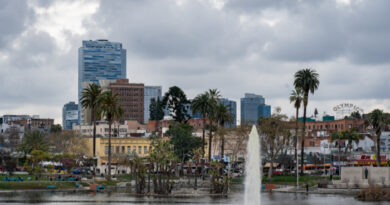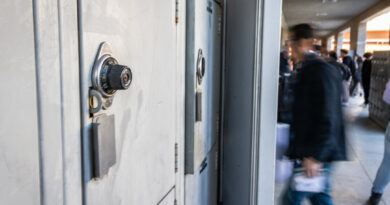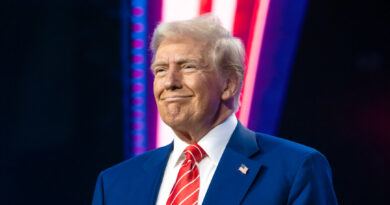Keir Starmer: An Unexpected Leader in Times of War, Yet He’s Making His Mark | US News
“Relieved is an understatement,”
One senior government figure expressed this sentiment as the prime minister, along with the foreign secretary and the Number 10 team, exited the White House. They had successfully solidified the relationship between Sir Keir and President Trump, reaffirmed commitments to NATO, explored a trade deal that might shield the UK from tariffs, and received the president’s endorsement regarding the Chagos deal.
This highlights the high stakes that were involved in engaging with a president who has been vocal in his critiques of many longstanding allies lately.
The successful outcome of the Starmer-Trump meeting showcases, according to those close to the prime minister, the significant groundwork and detailed planning that preceded it.
The groundwork began in opposition, with Keir Starmer reaching out to President Trump following the assassination attempt, while his foreign secretary engaged with Vice President JD Vance.
The meet-up at Trump Tower in September was a pivotal moment, after which the prime minister remained notably silent on any potential criticisms directed at the president.
Upon confirming the visit, the Number 10 team meticulously strategized every possible scenario, with the prime minister thoroughly reviewing the details with aides to “maximize the visit’s potential.”
They emerged from the experience feeling optimistic, believing that various elements aligned perfectly resulting in trade victories and a “special” Keir Starmer confidently engaging with President Trump for a positive relationship.
A few elements contributed to the prime minister’s advantageous position.
The first component was President Trump’s genuine fondness for the UK, paired with Sir Keir’s team’s understanding of the president’s emphasis on personal relationships.
Understanding this dynamic often paves the way for smoother interactions, according to those who have observed the president closely.
Sir Keir Starmer, notably more reserved, has reportedly cultivated a sincere rapport with President Trump: “They genuinely appreciate one another and find it easy to converse,” remarked one observer.
Next was the strategic use of soft power.
During my time in the Oval Office, I witnessed the prime minister present a personal letter from the King inviting President Trump to a second state visit.
Trump was visibly pleased as he read the letter, admiring King Charles’s signature and highlighting that this marked a historical “incredible” honor never before bestowed.
The prime minister also came prepared with significant contributions from a president who appreciates a good deal.
The announcement to raise defense spending to 2.5% of GDP by 2027 was met with enthusiasm on Capitol Hill among Republicans, underscoring to President Trump that the UK is a reliable ally responsive to his defense spending calls.
The meeting yielded favorable outcomes, including Sir Keir Starmer’s arrangement to transfer sovereignty over the Chagos Islands, where the US maintains a strategic military base, to Mauritius, an endorsement from President Trump that was a welcome turn for the PM amidst domestic criticism regarding the deal.
Moreover, when I inquired about the president’s criticisms regarding EU tariffs—remarking that the union had been structured to “screw” the US on trade—he mentioned he faced challenges with the EU but was in a “very different place” with the UK.
“I have a great warm spot for your country,” President Trump shared with me before our discussions.
Post-meeting, he conveyed to reporters in the East Wing of the White House that there was a “very good chance” of a trade deal wherein tariffs wouldn’t be necessary.
While this suggests progress, much remains to be decided. Against a backdrop of a president hinting at tariffs on various countries, securing this statement was a significant success for the PM.
However, prior to the visit, the focus was largely on securing security assurances for Ukraine.
Sir Keir emphasized that establishing a safety net for European peacekeepers in Ukraine is crucial for containing President Putin’s ambitions.
Read more:
Starmer contradicts Vance over free speech claim
Read some of Trump’s letter from King Charles
Top five moments from Trump-Starmer press conference
On this matter, President Trump remained somewhat evasive, highlighting the need to finalize the deal first and mentioning that the mineral agreement he plans to sign with President Zelenskyy could serve as an adequate deterrent.
Looking ahead, the PM is set to host 18 leaders in London on Sunday to deliberate on the next steps.
Ultimately, Europe requires reassurance that the US stands firm on Ukraine; however, the PM did not leave the Trump meeting with that certainty.
Nonetheless, the call for increased NATO investments was reiterated, with expectations from the UK side that President Trump will seek further commitments regarding defense expenditure from Europe as part of any security arrangements.
What is evident from this meeting is that Sir Keir and the UK have the potential to act as a conduit between the US and Europe, especially as the relationship between Brussels and Washington continues to deteriorate, presenting Sir Keir a critical opportunity to step into the limelight.
After a rocky start to his premiership, the prime minister has discovered in his pursuits regarding Ukraine a means to showcase his leadership—perhaps also a route to win back skeptical voters.
He has effectively navigated relations with President Trump. The upcoming summit on Sunday will be his next challenge as he strives to unite President Zelenskyy with other European leaders to urge a plan supporting any peace agreement.
Starmer was an unexpected leader in times of strife.
However, he is finding a path forward.







